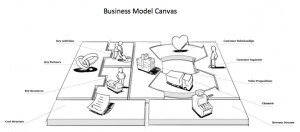The Changing Nature of SMEs
 Oxford Economics is a world leader in global forecasting and quantitative analysis for business and government, and a trusted resource for decision-makers seeking independent thinking and evidence-based research. SAP recently commissioned them to investigate the changing nature of the SME sector. Their findings make very interesting reading.
Oxford Economics is a world leader in global forecasting and quantitative analysis for business and government, and a trusted resource for decision-makers seeking independent thinking and evidence-based research. SAP recently commissioned them to investigate the changing nature of the SME sector. Their findings make very interesting reading.
Their study of 2,100 SMEs in 21 countries across reverses the traditional notion that SME’s are local or regional entities that are largely technophobic, and have at best only a supporting role in international trade. In fact SMEs are thinking and acting globally, competing with rivals of all sizes—including much larger firms—and investing aggressively in technology to improve operations and make themselves more nimble.
To put some numbers on how internationally focussed SME’s are becoming, only a quarter of those surveyed generated no revenue outside their home territory with over a third having more than 20% of their revenue from exports. Even more dramatic is the fact that the number of SME’s exporting to six or more countries will rise from 15% today to 35% over the next three years.
So what is the relevance of this to the software industry?
There are four issues for software companies.
First; the research found that SME’s are investing aggressively in technology to both improve operations and to make them more nimble. This means that there is significant opportunity for ISVs to sell software.
Second; if your customers are internationalizing then you have to, because your customer will want software providers who can support them in the countries where they are.
Third; The technologies these high growth SMEs are investing in. According to the research their priorities for budget allocation are as follows:
- Business Management Software
- Business Analytics
- Mobile
- Social Media
- Cloud Computing
Four; ISV’s will have to acquire skills in developing routes to market outside their own territory. Just as these successful SMEs have undertaken significant changes to their business model operations and go-to-market strategy to succeed in internationalizing, so also will ISVs. Unless you are particularly well funded that will mean partner channel development.
As Oxford Economics points out in their conclusion, successful businesses will have a global mindset and will be unafraid of changing their existing business models, culture and strategy to achieve this.









